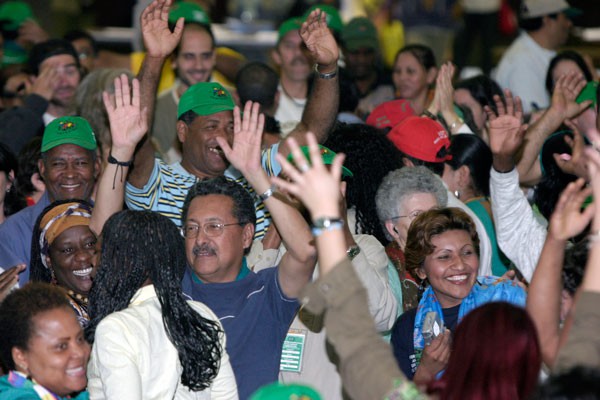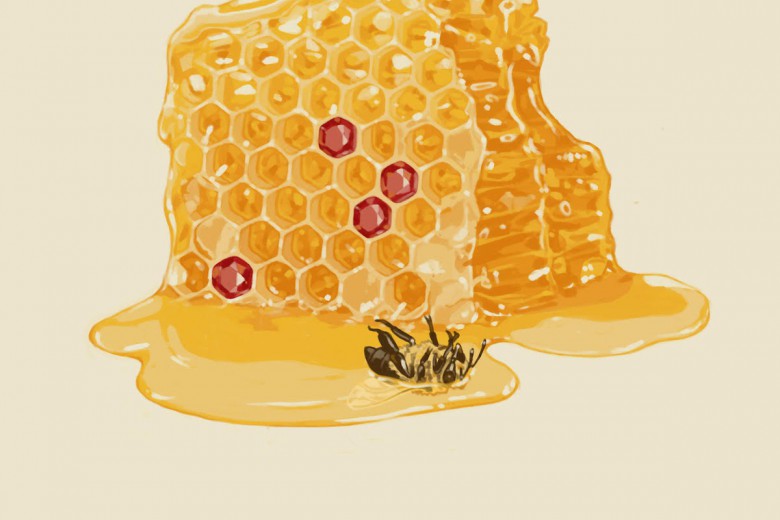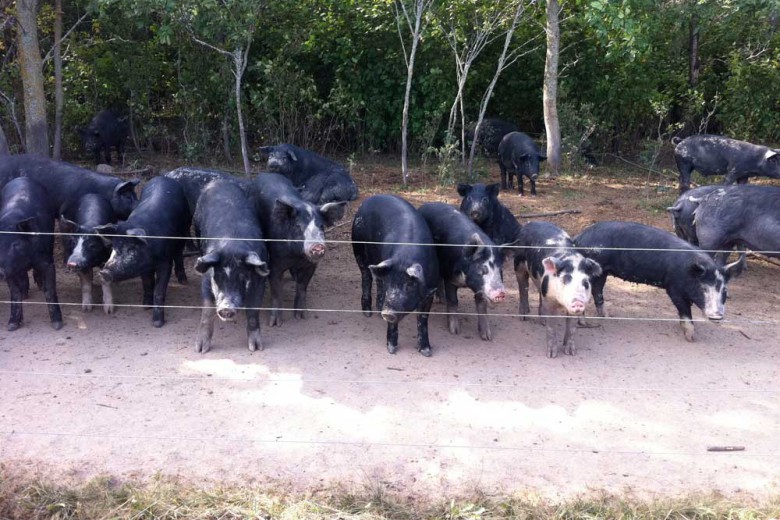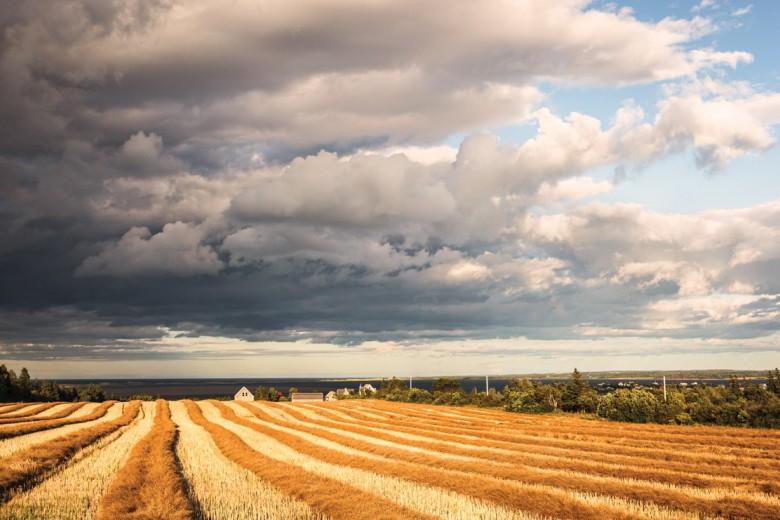
They numbered almost 650, from 86 countries and five continents, when they arrived in Maputo, the capital of Mozambique. They were delegates, support teams and special guests of the Fifth International Conference of La Vía Campesina, which took place from October 16 to 23, 2008. To reach Maputo, most of the delegates had made a considerable economic and human effort. Maputo is not a city you get to easily. At a moment when the world economy had yet to come up for air, in which the credit, environmental, food, trade and finance crises were colliding against one another and shaking the international economic architecture, farm leaders from many regions of the planet gathered together to collectively analyze the global food crisis and its relation to the financial crisis, and to show the world why food sovereignty – the democratization of the global food system – is a viable and necessary alternative.
La Vía Campesina is a transnational agrarian movement made up of organizations of peasants, small- and medium-scale farmers, rural women, farm workers and indigenous agrarian communities throughout Asia, the Americas, Europe and Africa. These groups all share an intimate connection to the land and a collective will to work together to build a more humane world.
Since its inception in 1993, La Vía Campesina has become a powerful voice of radical resistance to the globalization of a neo-liberal and corporate model of agriculture. Born from peasants’ tenacious determination to continue being peasants, La Vía Campesina is now a key actor in the archipelago of altermundista (alter-globalization) movements. Resisting the kind of modernization that excludes the majority, La Vía Campesina promotes instead a modernization which embraces everyone.
The growing visibility of La Vía Campesina as a key social actor has attracted the attention of many rural organizations seeking alternatives. La Vía Campesina now includes 149 progressive organizations from 69 countries, making it the largest transnational rural social movement to have emerged in recent times. Through its primary strategy of “building unity within diversity,” the movement continues to build solidarity across gender, race and class lines.
Anatomy of a crisis
The urgent need for such unity and solidarity is amplified by the acute situation the world is currently facing. The cascading series of events now known as the world food crisis started in Mexico as the “tortilla war “in January 2007. It then flared up in Italy as the “spaghetti strike” nine months later. Later it became an unstoppable avalanche. Protests against the rise in food prices ensued in Haiti, Mauritania, Yemen, the Philippines, Egypt, Bangladesh, Indonesia, Morocco, Guinea, Mozambique, Senegal, Cameroon and Burkina Faso. The new hunger is global. Usually generalized food scarcity had been limited to particular countries or regions, but now it was happening simultaneously in many nations and across various continents.
La Vía Campesina believes that this crisis is the result of decades of destructive policies: pressure from international institutions such as the World Bank and the International Monetary Fund to decrease investment in small-scale food production through structural adjustment programs; increasing the power of transnational corporations; financial speculation; and more recently, governments’ support for the frantic escalation in the production of agro-fuels. In its “Open Letter from Maputo,” La Vía Campesina states that the resulting crisis has multiple dimensions: “There is a food crisis, an energy crisis, a climate crisis and a financial crisis.”
The final declaration of the conference, read out on the 23rd of October, articulates the enormous challenges the movement now faces:
“ … we are witnessing an offensive of capital for the control of natural resources, the likes of which we have not seen since colonial times. The crisis of the rate of profit has led Capital to launch a privatizing war for the eviction of our peoples (peasants and indigenous), and theft through privatization of our land, territories, forests, biodiversity, water and mineral resources. It is an aggression against both rural peoples and the environment. In the moment when peoples exercise their rights and resist this generalized dispossession, or when they are obliged to enter into migratory flows, the answer has been more criminalization, more repression, more political imprisonment, more assassinations, more walls of shame and more military bases.”
The goal of La Vía Campesina is to bring about change in the countryside – change that improves the livelihoods of land-based peoples, change that enhances local food production for local consumption, change that is based on the equitable distribution of power and control over resources, and change that opens democratic spaces and empowers peoples with a greater say over issues affecting their daily lives. La Vía Campesina argues that this new model of rural development can be achieved through the promotion of food sovereignty, a term coined by La Vía Campesina in 1996 to describe the radical transformation and democratization of the food system they are calling for.
Via Campesina leaders from Indonesia, Brazil and Bolivia.
An idea whose time has come
There is nothing more powerful than an idea whose time has arrived, wrote the French novelist Victor Hugo. In the midst of the gravest food crisis in decades, the time for food sovereignty has definitely arrived.
Food sovereignty represents a radical shift away from mainstream food and agriculture policies. According to La Vía Campesina’s 2003 position paper, “food sovereignty is the peoples’, countries’ or state unions’ right to define their agricultural and food policy.” It includes farmers’ and peasants’ “right to produce our own food in our own territory.” Food sovereignty gets at the heart of what food is produced, who grows the food, where and how it is grown, and on what scale. Just as importantly, it effectively places those who produce and eat food at the centre of decision-making about food and agriculture policies.
In essence, food sovereignty entails a sweeping transformation of entire societies because it involves changing the way we think about food, changing social relations around food, and changing culture and politics. The magnitude of this transformation hit home in a powerful way when, during its Fifth International Conference, La Vía Campesina launched a campaign with the slogan “Food sovereignty means stopping violence against women.” According to Paul Nicholson, a farm leader from the Basque Country and former member of the International Coordination Commission of La Vía Campesina:
“This is going to be very difficult and very complex because we’re not speaking just of a formal campaign against violence. We’re speaking about changing relationships, family relationships, traditional relationships. It will be a major challenge and it will be a difficult one for many organizations. But it is absolutely necessary.”
At a recent international workshop on food sovereignty organized by professors at the University of Regina, Simon Fraser University and St. Andrew’s College, in collaboration with the National Farmers Union, Jim Handy, a professor of history at the University of Saskatchewan, spoke of the revolutionary implications of the seemingly simple idea of democratizing the food system:
“I would like to express my sense of awe at the enormity of the change that is envisioned through the concept of food sovereignty. Food sovereignty challenges not just a particular development model, doesn’t just challenge a particularly abhorrent form of neo-liberalism, doesn’t just suggest a new set of rights. Rather, it envisions fundamental changes in the basis of modern society. Modern society was based on a set of exclusions and enclosures that were fundamental to the emergence and strengthening of capitalism. Those exclusions were felt primarily in the countryside and primarily in agriculture. Capitalism was dedicated to divorcing producers from any right over the goods they produced and encasing those goods in ever larger, ever more disconnected, ever more monopolized, and ever more destructive markets. Food sovereignty challenges all of that because it demands that we rethink what was at the very centre of this transition; it demands that we treat food not simply as a good, access to which and the production of which is determined by the market, it demands that we recognize the social connections inherent in producing food, consuming food, and sharing food. In the process it will change everything.”
Feeding the world and cooling the planet
Responding to the global food and credit crises, La Vía Campesina has asserted that “food sovereignty offers the only real alternative as much for the lives of people as for reversing the crisis.” As the Maputo Declaration states:
“The principal theses of neoliberalism are being stripped of their legitimacy in public opinion, and the … international financial institutions (World Bank, International Monetary Fund, World Trade Organization) are proving to be incapable of administering the crisis (in addition to being among the cause of the same crisis). This creates the opportunity to eliminate them, and create new institutions to regulate the global economy that serve public interests. [I]t is clearer every day that the global corporate food regime is not capable of feeding the great majority of people on this planet, while food sovereignty based on peasant agriculture is more needed than ever.”
According to La Vía Campesina, only small-scale family farming is capable of feeding the world. Diamantino Nhampossa, director of the Peasants’ Union of Mozambique put it like this in an interview conducted during the conference: “The cause of the food crisis is the neo-liberal model and capitalism. The solution to this problem cannot be found within the same model. As a solution, we propose the model of food sovereignty that promotes family agriculture.”
Honduran peasant leader Rafael Alegría declared at the conference, “We’ve never lived a crisis like the present one. And we did not create it. Humanity is threatened, but not by us. On the contrary, we are the ones who guarantee food. Now, however, it is financial capital that controls the harvests. They speculate with them. We are the ones called to produce when food is missing. The surpluses of the European Union and the United States will not be able to resolve the problem.” In response to an international food and financial crisis caused partly by unregulated financial speculation, La Vía Campesina has called for an end to financial speculation in the food system.
Food sovereignty privileges local peasant production as the answer to the food crisis. Small-scale farming not only improves food security but also combats climate change by attacking two principal sources of greenhouse gas emissions: food transportation over large distances and industrialized agriculture. Food sovereignty, according to conference delegates, requires “re-nationalizing food production … the promotion of local production … genuine agrarian reform and the defence of indigenous peoples’ territories.” Finally, food sovereignty relies on ecologically sensitive production models rooted in peasant and indigenous knowledge. In these models, transnational corporations, chemical pesticides and genetically modified crops have no place.
Since La Vía Campesina first introduced food sovereignty to the international arena leading up to the World Food Summit in Rome in 1996, the concept has gained significant momentum as a formidable instrument of action to confront hunger, rural poverty and the destructive roller coaster of erratic agricultural prices. Numerous social movements and non-governmental organizations have embraced the concept in their efforts to change agriculture and food policy everywhere. The new constitution of Nepal now speaks of food sovereignty, while the governments of Bolivia and Venezuela are seeking to integrate a food sovereignty framework into their national policies. Food sovereignty is also being explored by global institutions such as the UN Food and Agriculture Organization, and recent reports to the United Nations Commission on Human Rights advocate food sovereignty as a means of ensuring the human right to food and food security.
Millions of peasants and small-scale farmers from all over the world who are organized in La Vía Campesina and who refuse to disappear, along with millions who care about the planet and humanity, see in food sovereignty a new path and a necessary way forward. Food sovereignty is an idea whose time has clearly arrived.






